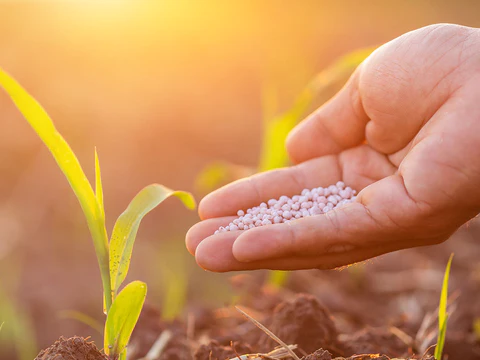Potassium deficiency in soil, exacerbated by the lack of affordable potash, is identified as a significant contributor to declining agricultural productivity.
A recent collaborative study by UCL, the University of Edinburgh, and the UK Centre for Ecology & Hydrology has sounded alarms over the escalating prices of potash worldwide, citing a looming threat to global food security. The research highlights the detrimental effects of the soaring costs of potash fertilizers, particularly on the availability of essential nutrients for farming soil.
Potassium deficiency in soil, exacerbated by the lack of affordable potash, is identified as a significant contributor to declining agricultural productivity. Potassium plays a crucial role in plant growth, facilitating vital processes like photosynthesis and respiration, ultimately influencing crop yields. The application of potash or potassium-based fertilizers is essential for replenishing depleted potassium levels in fields.
The study underscores the severity of the situation, revealing that approximately one-fifth of global farmland is categorized as experiencing “severe” potassium deprivation due to the inability to replace lost minerals. Disturbingly, certain regions are disproportionately affected, with South-East Asia, Latin America, and Sub-Saharan Africa facing alarming percentages of farmland in dire need of potassium replenishment.
Professor Mark Maslin from UCL’s Geography department, a co-author of the Nature Food study, emphasized the critical role of potassium in sustaining crop yields to meet global food demand. He warned that the depletion of potassium poses a significant threat to the food security of millions worldwide, urging immediate attention to this overlooked issue amid the growing global population.
The study sheds light on the dominance of just 12 countries in the potassium fertilizer market, with Canada, Russia, Belarus, and China accounting for 80% of potash supply. Notably, Russia and Belarus alone contribute more than half of this supply, underscoring the vulnerability of global potash availability to geopolitical tensions and disruptions.
The researchers describe a “perfect storm” of factors—including increased fertilizer demand, rising fuel prices, pandemic recovery efforts, and geopolitical conflicts—that led to a staggering 500% surge in potash prices in 2022 compared to the previous year. The imposition of import sanctions on Russia and Belarus by the UK, US, Canada, and the EU following the invasion of Ukraine further exacerbated the price volatility.
Dr. Peter Alexander from the University of Edinburgh stressed the far-reaching implications of potash price volatility on the global food system, particularly for vulnerable populations. He emphasized the need for policies and regulations at national and international levels to ensure sustainable management of soil potassium, akin to measures applied to nitrogen and phosphorus.
Lead author Will Brownlie from the UK Centre for Ecology & Hydrology underscored the importance of holistic nutrient management practices, advocating for coordinated efforts to maximize farming outcomes while minimizing environmental harm.
The study’s recommendations include global assessments of potassium stocks and flows, enhanced monitoring capabilities to anticipate and respond to price fluctuations, and support for farmers to maintain adequate soil potassium levels.
Furthermore, the researchers call for evaluations of the environmental impacts of potash mining, the development of a global circular potassium economy, and increased governmental cooperation through international bodies like the UN to address the challenges posed by potash scarcity. These proposed measures aim to mitigate the risks posed by the escalating prices of potash and safeguard global food security in the face of mounting challenges.
